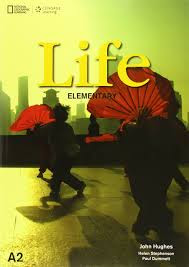Board Race. There are 10 questions. All of the questions are from pages 18, 19, 20, and 21. Work as a team to find the answer in your textbook. Then write the answer on the board. Only one team member may go up to the board at a time. You may not bring this piece of paper or your textbook with you to the board. The first team to get the correct answers to all 10 questions up on the board will get a prize.
1. One of the key strategies in the Listening module is to ________________ the situation and language you might hear. In this way, you are better prepared for the listening tasks that follow.
2. The listening test has ________________ sections, with ________________ questions in each section.
3. In the IELTS test, you can lose marks if you don’t follow the instructions carefully. What are 3 common errors that candidates often make regarding not following the directions?
4. Section 1 of the Listening module is a ________________ dialogue with a ________________ purpose.
5. Listen carefully for keywords and paraphrases. Don’t choose the first option you hear mentioned, as it may be a ________________.
6. The listening test takes around ________________ minutes. You are then given a further ________________ minutes to transfer your answers to an answer sheet.
7. For each gap, identify what information you need for the answer and, if possible, try to ________________ the answer.
8. Don’t always expect the keywords in the question to be the same as on the recording—listen out for ________________ and ________________.
9. Remember to check your ________________.
10. How many times will you hear the recording?
Answer Key
1. anticipate
2. 4, 10
3. using more than the specified number of words for an answer
not using the actual words from the recording
recording the answer in the wrong place
4. non-academic, transactional
5.distractor
6. 30, 10
7. predict
8. synonyms, paraphrases
9.spelling
10. once only.
Sec: Hello, come in.
St: Good morning. Are you the enrolment secretary?
Sec: I am.
St: I’m not too late to enrol on a course, am I?
Sec: No. We’ll be enrolling new students till the end of the week.
St: Oh, thank goodness!
Sec: Have you done one of our courses before?
St: Oh no, this is my first time: the first step of my brilliant career.
Sec: Well, let’s hope so. First though, we have to fill in a form.
St: Forms! They’re so boring!
Sec: But necessary, I’m afraid. Now, what is your first name?
St: Sara, no “h”.
Sec: Sorry?
St: S-A-R-A, Sara.
Sec: OK. Now your family name?
St: But I’m thinking about changing it to Simone, or maybe Sylvia.
Sec: Well, I think Sara’s fine. So, what’s your family name?
St: My family name is Walker.
Sec: W-A-L-K-E-R?
St: Yes.
Sec: Ok. Now, where do you live?
St: Oh, yes, it’s nineteen, one nine, Swan Street, London.
Sec: Swan?
St: Yes, like the bird.
Sec: OK, and your postcode?
St: N8 6BY.
Sec: N8 6BY...and how old are you?
St: 18, well ...19 next month.
Sec: So, 18. And what course would you like to do, Sara?
St: Well, I woke up this morning and said to myself, “Now Sara, what are you going to do with your life? What course are you going to do?” My Dad thinks I should become a financial advisor and do people’s accounts, because I’m pretty good with figures. Or perhaps I should be some kind of biologist, because that was my best subject at school. Or should I pursue my real love, modern dance?
Sec: And you chose modern dance.
St: Yes, I did. I want to make my living as a dancer.
Sec: Good for you. Now the course starts in the first week in September, which is … let me see … the fifth.
St: Oh, great! I can’t wait.
Sec: Now, hold on! You have to be accepted onto the course first. You’ll need to come in for an audition and interview.
St: Oh no! I hate auditions.
Sec: I’m afraid if you want to be a dancer, they’re all part of the job!
St: Ah, well. When can they see me?
R: Hello! Hello, can I help you?
N: Yeah, I just wanted to… is this where you apply for courses?
R: Well, it depends what course you want to take.
N: Um …, business administration.
R: Fine. Take a seat and we’ll complete all the necessary forms.
N: Oh, … thanks!
R: Now, what’s your first name?
N: Nigel.
R: Nigel, OK. And last name?
N: Tufnell.
R: Sorry?
N: Tufnell. T-U-F-N-E-L-L
R: And when were you born?
N: When was I born? Er, 7th of July 1994.
R: OK and you’re male. And you were born in the UK?
N: Yeah, British.
R: And your first language is English?
N: Er… Yeah.
R: Address?
N: 12 Castle Street, Oxford.
R: Postcode?
N: Oh, no! I knew you were going to ask me that. I can never remember it! It’s OX4 … OX4 … 2PG. No! OX4… 2JP. That’s it!
R: Sure?
N: Positive.
R: Your phone number?
N: Oh, that’s easy! 01865 72388
R: Now, qualifications. Any “A” levels?
N: Yeah. Three.
R: Subjects and grades, please.
N: Um … maths, B. Economics the same and then er, history …
R: And what did you get for that?
N: E.
R: Oh, dear. Well, at least you passed.
N: Yeah.
2.6
R: And it’s business administration you want to do, isn’t it?
N: Business administration. That’s right, yes.
R: That’s code, code … let me just check … yes, BA010. OK, the next course starts next semester. That’s the fourth of October.
N: How long does it last?
R: A full academic year.
N: A year?
R: An academic year. That’s around nine months.
N: Oh, OK. Good. Good.
R: Now all I need from you is a cheque covering the cost of the course, which is 3,500 pounds.
N: I didn’t realise you’d need it today.
R: Well, you don’t have to pay it all right now, but obviously you need to pay before you start the course and there are only a limited number of places, so …
N: Can I give you a deposit?
R: A 10% deposit would secure your place, yes.
N: Is there a bank round here?
R: There’s a cashpoint. Go out of this building. Turn left. Go past the library and the cashpoint is just by the main lecture theatre opposite the canteen.
N: OK. I’ll …. I’ll go and get the money.
R: You’d better hurry: the office is closing in five minutes.
N: OK, won’t be long.





